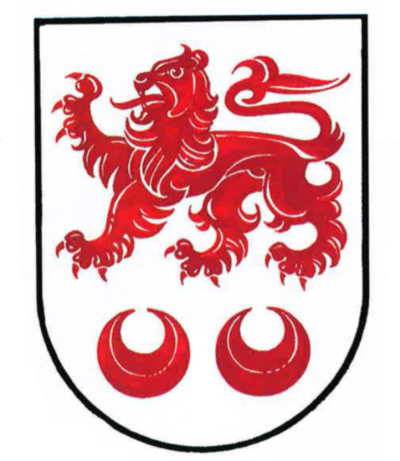Unlike most of the families covered in this column, the origin of the Kavanaghs or Cavanaghs can be traced back to one specific person. This was Donal, the son of Dermot McMorrough, a twelfth-century king of Leinster. This Dermot has an infamous place in Irish history since it was through his invitation that the Normans first came to Ireland, in 1169 AD. Dermot’s son, Donal, was educated at a monastery dedicated to St. Kevin, or Daomhan in Gaelic, and thus came to be known in Gaelic as Donal Daomhanach, meaning Donal the supporter of St. Kevin. This name, in an anglicized form, is the origin of the name Kavanagh, Cavanagh or Cavanaugh. It is one of the few names of Gaelic origin which did not have either an O’ or Mc’ prefix.
Donal, the original Kavanagh, did not succeed to the kingship of Leinster but did become chief of large parts of Wexford and Carlow, in which the Kavanagh family are still very numerous.
The Kavanagh family retained their independence, their territories, and the Kingship of Leinster up to the time of Elizabeth I. The inauguration of the Kavanagh Kings took place on a fortress by the River Barrow in Carlow. In 1314 Edward II of England sought help from the then king, Maurice McMurrough Kavanagh, against the warring Scots.
Art McMurrough Kavanagh, who died in 1417, was one of the most famous of the Kavanagh line and the first to formally use the Kavanagh name. He was king of Leinster for forty-two years and the Annals of the Four Masters describes him as “a man who defended his province against the English from the age of 16 to that of 60; a man distinguished for his hospitality, knowledge, and feats of arms; a man full of prosperity and royalty….” Art’s son, Donal, was imprisoned by the English for nine years, until he was ransomed by his people in 1428. Kavanaghs retained their prominent position in subsequent Irish and American rebellions. In the Army of King James in 1691, there was the Infantry Regiment of Colonel Charles Kavanagh, in which there were also twenty — one other Kavanaghs of Wexford and Carlow. Most of this army emigrated to continental Europe after the Treaty of Limerick and many of King James’ Irish Army later served in the Armies of France and Spain. In the American War of Independence there were sixty-nine Kavanaghs in the American Revolutionary Army.
One of the most extraordinary members of the Kavanagh line was Arthur McMorrough Kavanagh (1831-1889), who was born severely handicapped, with only rudimentary hands and legs. Despite these great disadvantages, and with the guidance of a devoted mother, he learned to shoot, ride horses, sail and partake in the other sporting pastimes of the landlord class into which he was born. He traveled extensively through India, Russia and Persia and in 1853 succeeded to the family estates in Borris, County Carlow. As a landlord he was very progressive and well-known for his efforts to improve the lot of his tenants. He also developed the local towns of Borris and Ballyraggett and managed the local railroad. He was married in 1853 and had seven children and was a member of the British Parliament from 1866 to 1880.
Another famous Kavanagh is the poet Patrick Kavanagh (1904-1967). Born on a small farm in Inniskeen, County Monaghan, he abandoned farming to pursue a career as a writer and is now regarded as one of the leading Irish poets of the twentieth century. His poetry is perhaps most famous for its eloquent and beautiful account of the hardships and triumphs in the life of a small farmer in that county. Among his most famous lines in this vein are:
O Stony Grey soil of Monaghan,
The laugh from my love you thieved
you took the gay child of my passion,
and gave me your clod-conceived.
He is commemorated in Dublin by a seat on the bank of the Grand Canal, in compliance with his wish: “O commemorate me with no hero-courageous tomb, just a canal-bank seat for the passer-by.”
Edward Kavanagh (1795-1834) was born in Maine, the son of James Kavanagh, who emigrated from Ireland in 1780 and became a mill owner and shipbuilder. In 1808, James was one of the builders of St. Patrick’s Church, one of the oldest Catholic churches in New England. The son, Edward Kavanagh, studied languages and, after a period in Europe, served in Congress from 1831-35 as a loyal supporter of Jackson. After a period as U.S. Charge d’Affaires in Portugal, he served as governor of Maine in 1843-44 and died a few weeks after leaving office.
In Canada another Kavanagh politician was Laurence Kavanagh (1764-1840), who was also the son of an Irish immigrant. He became a wealthy merchant, serving the needs of settlers in Cape Breton. He was elected to the House of Assembly, the first Catholic to do so, and was one of the leaders in building the economy of Cape Breton.
Editor’s Note: This article was originally published in the July/August 1998 issue of Irish America. ⬥


Leave a Reply